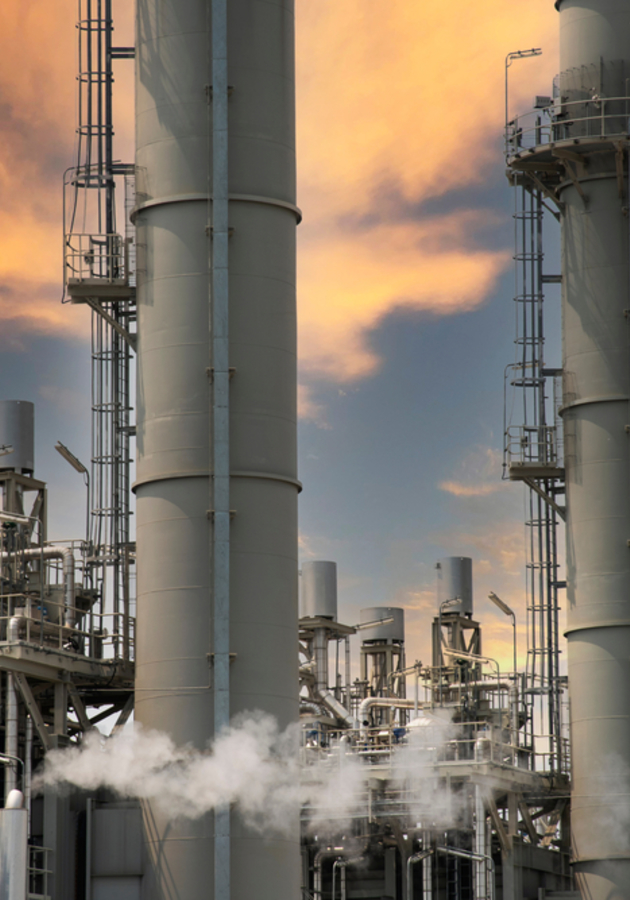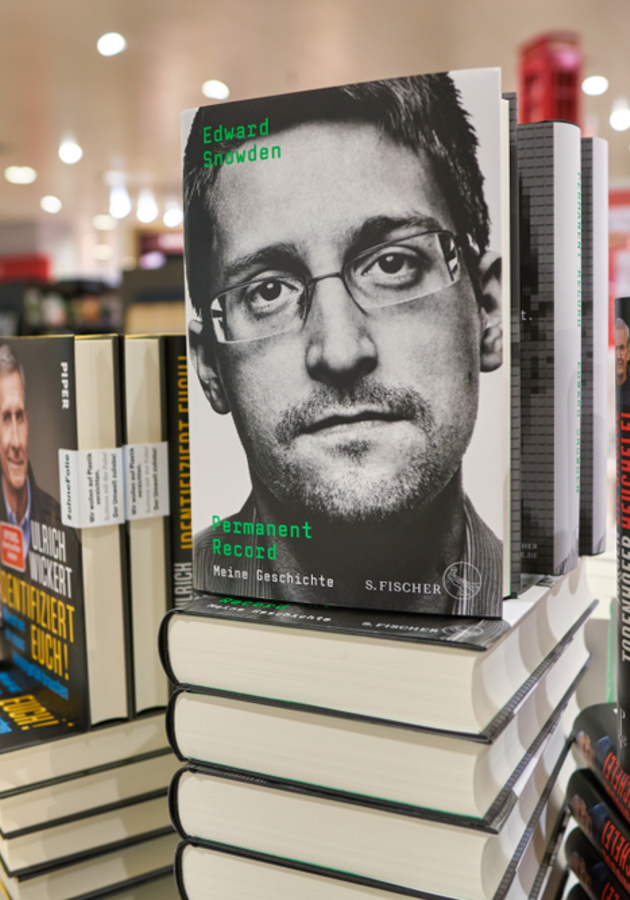Do you remember a big jump in the number of earthquakes in 2010 in Oklahoma? The ground was shaking then almost with the same intensity as in 1969 when scientists detonated a nuclear bomb to launch Project Rulison in Colorado. Some people might not associate 2010 with earthquakes in Oklahoma, but with Michael Jackson's $1 million memorabilia auction. Although it might seem odd at first, there is a thread connecting these events, and in ‘’Blowout,’’ Rachel Maddow discovers what they have in common. Get ready to find out more!
Beginnings of the oil and gas industry
Maddow believes that the same driving force of the above-mentioned events is, ‘’The most powerful, and the least-well-governed major industry in the history of mankind. Oil and gas.’’ She traces the beginnings of the oil and gas industry back to 1859 when the drill operators found ‘’rock oil’’ at a depth of 68 and a half feet. Soon after this discovery, drillers pulled around 2042 gallon barrels of crude oil from the ground on a good day. ‘’The inhabitants of our planet weren’t exactly starving for more in 1859, or at least didn’t yet know they were. The first commercially viable gas-powered engine, and the ensuing addiction, were still a few generations away,’’ Maddow comments.
Today’s drillers pull an average of over 90 million barrels of oil worldwide every day. Nearly 100 countries from six continents are in the oil and gas business, many of them being in it for a century or more. However, the United States pioneered the industry by inventing its trade tools, financing, administration, ethic, and reach.
The man who laid the foundation for the oil business as we know it today was John D. Rockefeller. Maddow writes, ‘’He created and husbanded the exemplar of the industry, Standard Oil, and along the way he helped to popularize the idea of America as the testing ground where the extravagant possibilities and the outsized benefits of free-market capitalism have been proven.’’ Rockefeller’s corporation Standard Oil shipped a million barrels of refined oil in a year, and by 1875, it had taken control of every major refining center in the country. By the end of the 1890s, about 90% of America’s crude oil flowed through Standard Oil. The company had the power to control the price of oil and railroad freight rates and had the cash to pay off the state and federal legislators who wrote laws governing the industry. Rockefeller’s biographer, Ron Chernow, wrote that Standard Oil eventually grew into, “The largest business empire on earth.” He writes, “I don’t know that the business world has ever seen an agglomeration of wealth and power on the scale of Standard Oil.”
Project Rulison
In August 1969, less than three weeks after Neil Armstrong stepped on the Moon’s surface, the public affairs office of the U.S., The Atomic Energy Commission (AEC), announced the start of another bold adventure - Project Rulison in Garfield County, Colorado. This project was supposed to solve the problem Austral Oil Company was struggling with for a while - liberating natural gas from the underground. Austral knew there was plenty of gas in that region, but could not find a workable method of sufficiently fracturing rock holding it. The company estimated there were about 8 trillion cubic feet of natural gas in the Rulison Field and another 100 trillion around the basin: an amount that could have supplied the entire country for around 10 years!
Project Rulison was as important to Austral as it was to the AEC and its program Atoms for Peace, which aimed to harness the power of atomic bombs for industrial purposes - ‘’Not just atomic energy, but the actual weapons themselves,’’ adds Maddow. It was beyond shocking that scientists and engineers were actually working toward developing nuclear technologies only two decades after the nuclear bomb killed nearly half of Hiroshima residents, leaving survivors to have 30 times the increased risk of dying from cancer caused by radiation. However, in 1969, almost no one spoke clearly about the possible applications of the project.
On September 10, 1969, the D-day finally came. The bomb exploded 8,426 feet beneath the earth’s surface, and the gas was liberated! There were two problems, though. First, enhanced by the nuclear experience, the gas became contaminated with krypton-85 and tritium. The second problem was that the machine that measured contamination did not work, so it was impossible to determine radiation levels at the blast site. This, however, did not stop AEC from launching another test in Rio Blanco four years later. This time, the project included detonating three 33-kiloton nuclear bombs at three depths within 851 feet of one another, leading, again, to increased radioactivity at the site.
All in all, these experiments cost about $82 million. That meant that even if they could manage to use all gas, Austral could recover only 40% of the expenses. Maddow comments, ‘’And so died our nation’s experiment in nuclear fracking, way back in 1973, after four glorious years of trying really, really hard.’’
The luxurious lifestyle of Teodorin Nguema (new-ay-mah)n Obiang Mangue
Did you know that 77% of the population in Equatorial Guinea lives in poverty, 35% die before the age of 40, and 57% lack access to safe water? If the country has an income of about $37,200 per capita, one of the highest in the world, why do most of its citizens live in extreme poverty? The poor living conditions are even more confusing after learning that the annual government oil revenues went from $2.1 million to $3.9 billion between 1993 and 2007.
In February 2010, the U.S. Senate’s Permanent Subcommittee on Investigations released a report titled, “Keeping Foreign Corruption Out of the United States: Four Case Histories.” The case study on Equatorial Guinea was around 100 pages long, focusing almost entirely on the son of the President of Equatorial Guinea, Teodorin Nguema Obiang Mangue, who was, at the time, Minister of Agriculture and Forestry. Teodorin attracted the subcommittee's attention with his extravagant lifestyle - he lived on a $75 million, 16-acre Malibu estate with a swimming pool, tennis courts, and a four-hole golf course. He had a $38 million private jet and an armada of cars insured at $10 million. Teodorin was also a big Michael Jackson fan. So, in 2010, he participated in Michael Jackson's memorabilia auction and made winning bids on every item. After the auction, Teodorin withdrew the $1,398,062.50 payment for the auction bill from a bank account in Equatorial Guinea. Considering that Teodorin’s father ranked eight on Forbes magazine’s list of the wealthiest world leaders, this expenditure does not seem that high.
The phenomenon of a high gap between the rich and poor in Equatorial Guinea is common in other countries dependent on oil as their primary resource for development. Oil sold on the global market brings high incomes to individuals who can get a cut of that sale price. Therefore, they will fight anyone else who might take political power and, ‘’Edge in on the financial teat they’ve stuck themselves to,’’ writes Maddow. Knowing this, it is more understandable why countries, such as Equatorial Guinea, are highly corrupted, economically troubled, and have poor governance.
Oklahoma earthquake swarms
Until 2010, earthquakes were quite rare in Oklahoma. During the three decades since the state began monitoring seismic activity, the Oklahoma Geological Survey had recorded only around 40 earthquakes above 3.0 on the Richter scale. However, in 2010, monitoring devices registered more than 20 earthquakes with a 3.0 magnitude in the first half of the year. The phenomenon was so striking that the new phrase ‘’earthquake swarm’’ soon entered the lexicon.
The locals have suspected a connection existed between the earthquakes and the enormous increase in hydraulic fracking in the area. ‘’Oil and gas drillers were pumping close to fifty million barrels of water deep into the earth’s crust every month in 2010,’’ writes Maddow. The implication of the theory that new earthquakes were man-made was that people who caused them could also stop them, right? However, that was not what Aubrey McClendon, founder of the Chesapeake oil company, was thinking. The year 2010 was pretty successful for him - his company ranked number two among America’s natural gas suppliers. Furthermore, a few days before the 5.1 earthquake outside of Norman, the government-owned China National Offshore Oil Corporation agreed to pay $1.1 billion for a one-third stake in Aubrey’s enormous shale play in south Texas.
Unfortunately, earthquakes were not the only extreme change people in Oklahoma experienced in 2010. The very same year, two families reported their pets dropping dead after drinking water from small puddles in the street. Toxicology screenings and urine tests on both families revealed the exposure to benzene that was floating around in the air on their properties. Further analysis discovered the presence of toxic chemicals such as ethylene glycol, ethanol, and butanol, in the springs and wells that supplied these two families with water. These chemicals are additives used in fracking fluids. It turned out there were some unexpected rips and tears in the above-ground wastewater, which allowed those chemicals to end up in the bloodstreams of both families and their pets. ‘’Hey, in the quest for American energy independence, maybe a few of us have to take one for the team - line up your pets, line up your eighth graders,’’ comments ironically Maddow.
Russian interference in the 2016 Presidential election
It took the FBI around two years to discover how Russians harmed Hilary Clinton’s campaign. Some of the things they did were hacking email accounts from Hillary Clinton’s presidential campaign and the Democratic National Committee. The Saint Petersburg-based Internet Research Agency (IRA) created social media content supporting radical political groups and divisions in the American electorate, shared by thousands of fake accounts. One of them was the account of Jenna Abrams (70,000 followers), who trolled Kim Kardashian and then people who thought the Confederate flags and monuments in the American South should come down. “Did you know that the flag and the war weren’t about slavery,” Abrams wrote, “it was all about money.”
‘’Putin and his techno-warriors figured out what differences and disagreements and prejudices were corroding the health and cohesion of American society,’’ writes Maddow. ‘’They found the most ragged faults and fissures in our democracy: immigration, race, religion, economic injustice, mass shootings.’’ Another question worth asking is: why did American democracy bother Putin?
At the beginning of the 21st century, Russia had enormous reserves of the most expensive commodity on earth - oil and natural gas. Instead of building itself a modern twenty-first-century economy and government, Putin chose another path to secure his power and permanent job security for himself. Therefore, similar to Equatorial Guinea, Russia has an economy dependent on the monopolized gas and oil industry, high unemployment and corruption rates, and lack of adequate medical care.
Since Russia’s economic future depends on deals with major international oil and gas companies, Putin's imperative is to corrupt other countries, support separatism, ruin free elections and democratic governance. So, economic sanctions countries dependent on Russia's natural gas imposed on Russia after the seizure of Crimea in 2014 meant reduced opportunities for Putin to build global power. Therefore, ‘’It was worth trying almost anything,’’ Maddow explains. Even meddling in the outcome of American Presidential elections.
Final Notes
‘’Blowout’’ discovers the devastating impact of the oil and gas industry on the contemporary world and, therefore, is a case for decreasing our reliance on fossil fuels: for the sake of the environment and global democracy. It is a must-read for anyone interested in climate change or corruption around the world.
12min Tip
Why don’t you try reading another microbook by Rachel Maddow titled, ‘’Bag Man?’’ It is about the corrupt politician Spiro Agnew, who Richard Nixon nominated as the vice president of the U.S. in 1968.





























